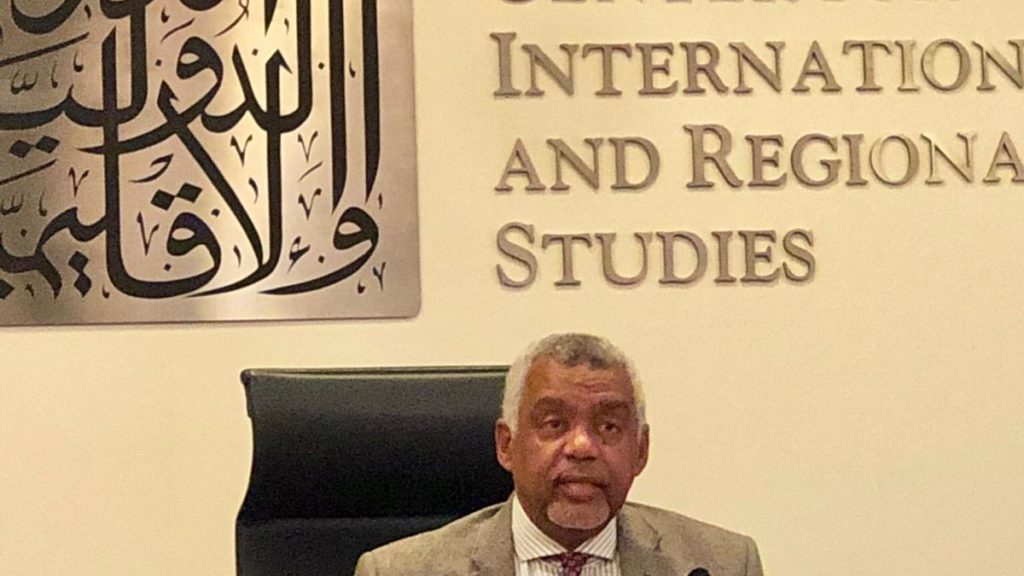CIRS Talk: Prospects for a Peaceful Democratic Transition in Sudan

Since late last year, the president of Sudan, Omar al-Bashir, has been facing an unprecedented wave of public protests and the greatest challenge to his rule since he took power almost thirty years ago. To discuss the causes and implications of the uprisings, CIRS hosted the Dean of the School of Social Sciences and Humanities at Doha Institute for Graduate Studies, and Professor of Politics, Abdelwahab El-Affendi for a lecture on the “Prospects for a Peaceful Democratic Transition in Sudan” on February 6, 2019.
While many have likened the wave of protests to the Arab uprisings that began in late 2010, Sudan has a long history of cyclical unrest. But unlike past crises, El-Effendi noted, these protests that began in December 2018 as a result of long-simmering economic frustration and triggered by the overnight spike in the cost of bread, have found widespread public support. They are “supported in almost every town of Sudan, among most classes of people, even…along the spectrum—from Islamist to left wing,” said Al-Affendi, noting that even wedding parties have turned into large scale protests.
Several other differences serve to define the current crisis, setting it apart from historical trends and giving rise to great uncertainty about future prospects. El-Affendi argued that the groundwork for future unrest was laid down by President Bashir’s failed “national dialogue” response to protests in 2013. His empty promises of serious reform exacerbated long-standing grievances and fomented rising distrust of authorities. The separation of Sudan into two separate states, also contributed to a sense of disenfranchisement and unrest.
The country now stands at the crossroads, with protestors refusing any form of compromise through consensus, declaring that a complete dismantling of the current regime is the only path forward. “At the moment, we are in a kind of deadlock where protests seem to be mounting and sustained, while the government seems to be able to hold the fort.”
El-Affendi concluded his presentation by offering three possible outcomes of the current crisis. Protests could be stifled through a government crackdown, the military could tip the balance by withdrawing their support of the embattled government, or a multilateral international mediation effort could be implemented. With the government refusing international help, concluded El-Affendi, the outcome may end up “a kind of Syrian scenario, where the regime will hold its own, but the protests will increase, and will probably become violent.”